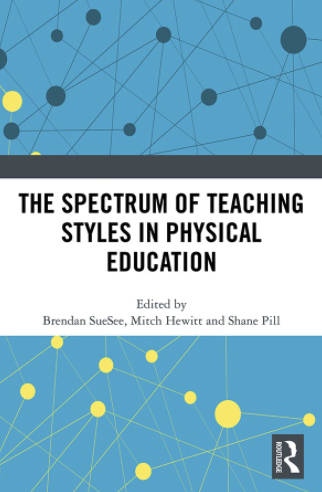This workshop will provide a brief history of The Spectrum, its basic tenets, and the 11 Landmark teaching styles which emerge when teaching is defined as a chain of decision making. Armed with this knowledge we will explore the styles strengths and what they can achieve, and how Spectrum knowledge provides teachers with a toolkit of styles to deal with any curriculum document or learning objective.
Further consideration can then be given to the application of a Spectrum of Teaching Styles to teaching and learning in Outdoor Education or more specifically for adventurous outdoor pursuits. In this workshop, Joss will show how many learning experiences in Outdoor Education are a cluster of styles as well as presenting key considerations for risk assessment and management when applying the Spectrum in these settings.
The Spectrum of Teaching Styles (The Spectrum) is a unified theory that defines the teaching-learning relationship as a chain of decision making between the teacher and learner/s.
When this concept is applied 11 styles emerge on The Spectrum of Teaching Styles. Evolving from (but not limited to) a Physical Education context, The Spectrum of Teaching Styles has most recently been explored in its application to sport coaching. The non-versus approach taken by The Spectrum places students and athletes at the centre of their learning and, with scalpel-like precision, clearly defines who (player or coach) is making decisions in each style. This clarity allows teachers, students, players and coaches to have their behaviours and decision-making clearly defined and provides a common language for players, coaches and practitioners to talk about coaching styles. For teachers and coaches interested in the wholistic development of the student/athlete, The Spectrum provides a detailed framework for achieving multiple outcomes through their work such as social, physical, ethical, emotional and social development.
This series of workshops will provide:
- Introduction to The Spectrum and the concept of Coach as educator
- Summary of the 11 teaching/coaching styles
- Detailed description of each style and the decisions made by students/players and teachers/coaches in each style to assist teachers/coaches being successful when implementing the style
- Outlines the strengths of each style and what they can achieve, all the time backed up with research over 50 years
- Numerous practical examples of the application of each style to a range of sports including Australian football, cricket, tennis, baseball, canoeing, rock climbing and netball to name a few
- Teaching/Coaching to develop social skills, self-analysis and error correction, teach athletes to decide on appropriate practice levels or challenge points, problem solving, solution generation and the design and implementation of coaching episodes for themselves as a player-coach
- Show how The Spectrum can be used in Physical Education Teacher Education situations or teacher education in schools for all teachers regardless of subject matter.
- For the first time, show how The Spectrum can be a powerful model in achieving numerous outcomes in Outdoor Education situations.
The three workshops in the series celebrate the launch of the new book edited by Brendan SueSee, Mitch Hewitt and Shane Pill; The Spectrum of Teaching Styles in Physical Education
Date and Time
19 May 2022 | 16:00 (GMT+8)
2 Hours
Price
Reference Start Times
Sydney – 18:00
Hong Kong – 16:00
Seoul – 17:00
Bangkok – 15:00
New Delhi – 13:30
Dubai – 12:00
Cape Town – 10:00
London – 09:00
Add your city
Background
Based on over 50 years of research from coaching, physical education pedagogy and motor learning and offering the most comprehensive application of The Spectrum to coaching, The Spectrum of Coaching Styles is important reading for coaches, athletes, students and lecturers of sports coaching across any sport if you want to succeed in coaching for multiple outcomes.











